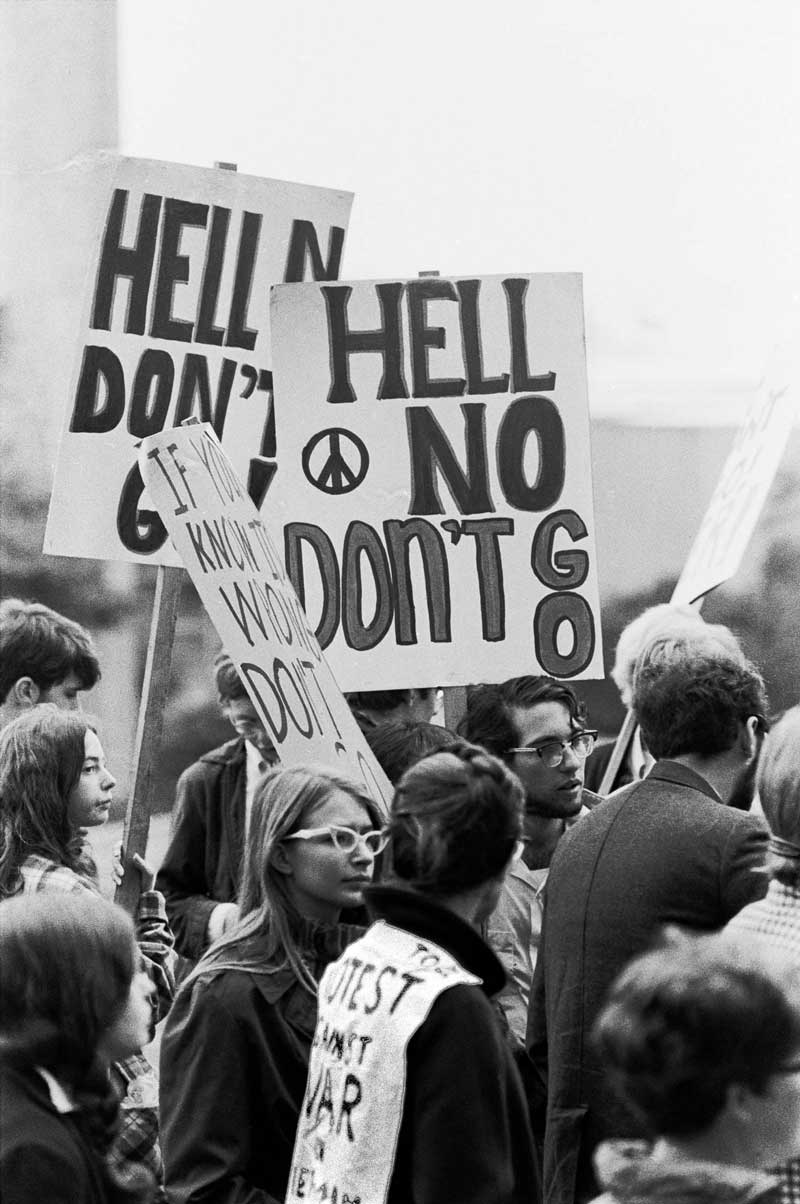War vs First Amendment

Ever since the very first war, the government has glorified the war effort. By stating that the people will be fighting for their family and country. Movies will be crafted and produced by the government to show the aspiring soldiers the heroic deeds that the men perform in war. This glorification influences people to support the war either financially or physically by joining the military. However, with all this positive support towards the war there MUST be many negative thoughts on the war. Right? The answer to that is simply put, NO…at least that is what the government wants you too think. With every war there have been a plethora of people, who spoke out against the governments positive support of the war and the government has responded by silencing their voices. Saying that these voices against the government present a clear and present danger and are not protected by the First Amendment.

The first example of the government silencing the voices of people was during the Civil War. This war began because of the tensions between the north and south states on the topic of slavery and whether it should be allowed to exist. This sparked many agreements and disagreements. Some even took to the streets rebelling against the North’s choice on the matter. So, Abraham Lincoln, the president at the time utilized his executive power and suspend Habeas Corpus. In doing so, the government obtained the power/right to sentence people to jail without a real reason to condemn them to jail. With this new power the government was able to silence many rebellions of the people allowing the voices of positive on the war to shine brighter.
Schenck v Government
Another example of when the anti-war voices were silenced was during World War l. During this tense time a socialists named Charles Schenck and several other pushed back against the governments drafting of soldiers stating that “the draft violated the Thirteenth Amendment prohibition againstinvoluntary servitude”. They constructed pamphlets and rallied many groups together to plead to the people that they must disobey the draft and go about a more peaceful route to this war. The government clearly did not like this action by Schenck and was charged with violating the Espionage Act of 1917, which his an act that prohibits the collecting of information, pictures or any piece connected to the national defense with a specific intent to use this new information to hurt the United States in any way. After many trials with the court, the eventually ruled that while Schenck did not violate the Espionage Act, it did however a “clear and very present danger” towards the government. This means that if the government determines an act of freedom of speech to be a clear and present danger, they can limit the first amendment and silence the voices of those people.
These are just two of the many public times that the government has shut down an opposing opinion to better allow the success of the governments war effort. This is the main reason why we see today more news supporting the government (for the most part) instead of going against it. For example, everyone knows Fox News and CNN, but what about “ANTIWAR.com” and “American Conservative”? While these websites are far less popular than Fox and CNN, both sites are clearly popular to a certain mass of people due to the simple fact that they still produce articles as of February 6, 2022. But because they are anti-war sites that push back against the war efforts and try opting for a more peaceful approach, they remain hidden under more popular websites that the government has an easier time controlling what is released especially when it comes to the war efforts.
These are not the only sites that fall victim to the government silencing them. There are probably hundreds of sites with differing opinions that the government may not want you to see. Which begs the question. Should we a a society push the government to stop silencing these different opinions and viewpoints? Or should we just remain on the same path letting the government choose what we see on a daily bases and what we don't see?
No comments:
Post a Comment